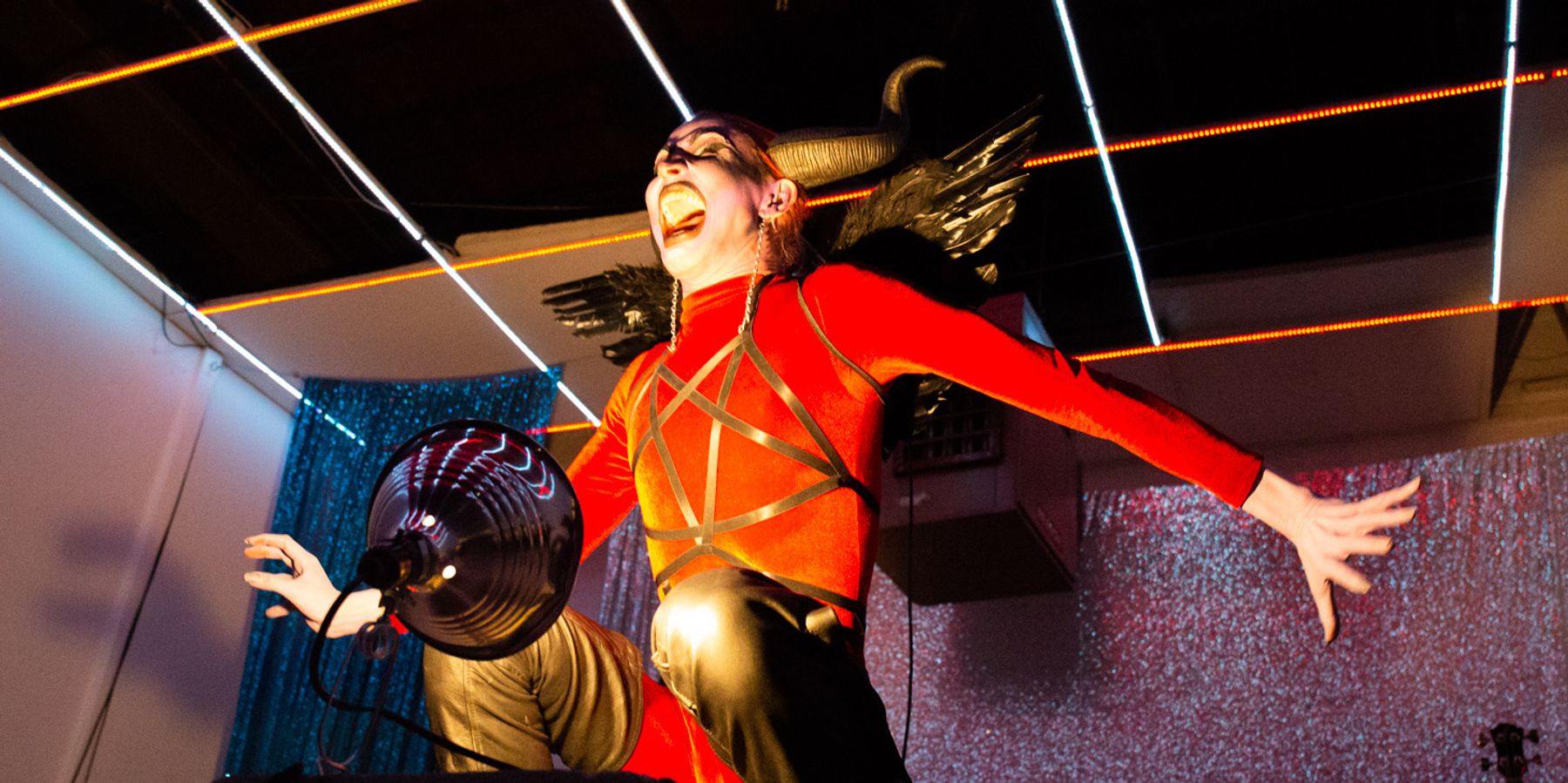
Atlanta is becoming much safer, which is a sign that other parts of the city are suffering. As noted by the Guardian, the Georgia capital's rapid gentrification is transforming what's been historically known as a "Black mecca" into something attractive to young, wealthy, straight white people. This shift, fueled by home flippers turning ravaged neighborhoods into glossy destinations, has had a direct impact on creative, marginalized communities — the ones that made Atlanta desirable in the first place.
"Atlanta is trending hard right now, so there's a lot of real estate developer attention lately and that's super annoying," Atlanta-based DJ/producer Leonce told PAPER. "They watch us activate a whole area with art and DIY spaces, and then come buy up entire streets and intentionally kill everything about the area that drew young artists and creatives to it in hopes that the area will remain trendy and gentrified for new (white) residents."
Across America, all DIY spaces are having difficulty staying afloat. Brooklyn's beloved queer destination the Dreamhouse (formerly known as the Spectrum) is among the lot of independently operated hubs that have decided to close as a result of financial stress. In Atlanta, however, there's a vibrant space that's thriving today despite the city's gentrification.
The Bakery, founded by Creative Director Willow Goldstein, is a "multifaceted arts complex that focuses on community engagement, the environment, education, and new technologies." According to their Patreon site, which helps The Bakery raise funds, Goldstein aims to "uphold the ethics of DIY, championing people over profit and encouraging open-mindedness, safety, and self-sufficiency." They have private studios, community workshop spaces, a multi-use gallery, several venues, and an outdoor event space.
When I went to The Bakery, DJs were playing ear-shredding house music well into sunrise, taking over one of the organization's venues and filling the space with Atlanta queers who danced for hours wearing head-to-toe looks. There was a makeshift bar, and an entire section with couches where you could take breaks, or dive into a deep disco nap, as I saw one patron do. As an outsider looking in, the entire DIY space felt like an escape for local creatives in search of a nightlife scene that catered to outsiders — an alternative to the gentrified clubs or parties that prioritize Atlanta's newest white, straight audience.
PAPER caught up with Goldstein to learn more about The Bakery's background, and what it takes to keep a DIY space alive in Atlanta today.
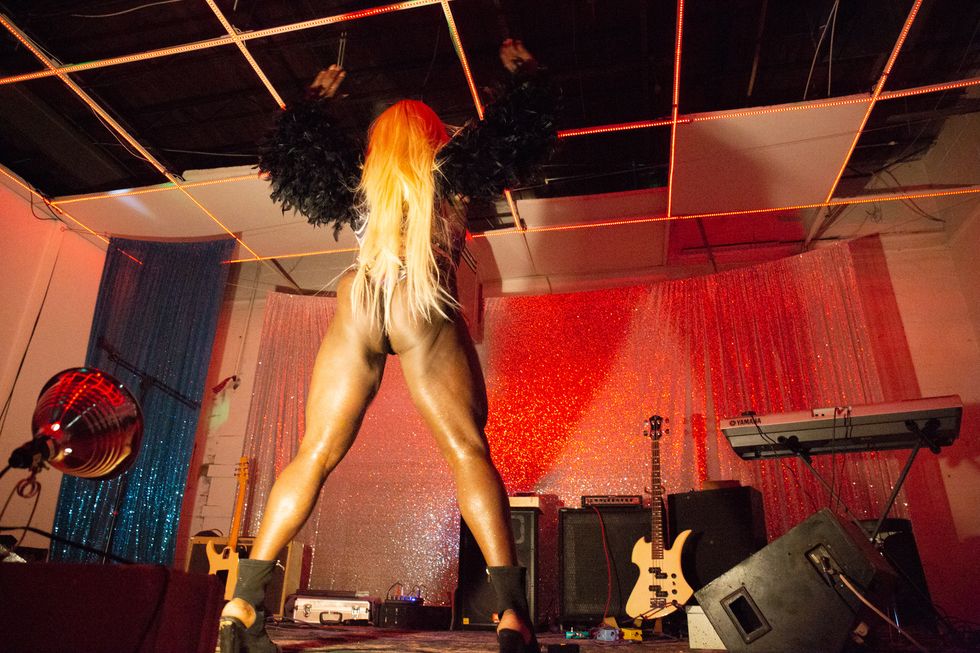
Photo by Jesse Pratt López
How did you first find The Bakery?
Physically, I 'found' The Bakery (825 Warner St) while driving around Atlanta with my mom, Olive, while looking for a place to live. I had recently returned home after living up North, first in Boston/Cambridge and then in Brooklyn, and was rediscovering a city that had, and is still, going through a lot of changes. It was fall 2016 when we first saw the property. I was actually home shopping when we stumbled across 825 Warner. Having recently met some artists in Atlanta who were able to purchase homes via Invest Atlanta's first-time homebuyer program, I was looking to become reinvested in my hometown. We pulled into the parking lot, partially curious and partially hesitant (as there were trash can fires and abandoned cars around and I believe we had recently watched Making a Murderer). We poked around for a minute before getting spooked and driving away. I found the previous "venue" on Facebook and followed their account in hopes of discovering what transpired there.
When did you eventually lease the building, and what shape was it in?
I finally attended an event there in January 2017 and stood in a corner with my friends dreaming about what we would do if we had a warehouse. About a month later, I finally was able to close on my house (a complicated process using city grants, loans, and a waitressing salary, but a process that was integral to what would come next... ) which is located about a mile away from 825 Warner. People down here always say Atlanta is just like a small town and so, as it goes, a few days later I met one of the property owners of 825 Warner and told him, in all earnesty, that I was going to lease his building. He took me seriously enough to give me his business card and set up a viewing. The building had been stripped of the copper and gutted in various forms over the years but under the current tenant, the place had just been trashed. Clothes, cigarette butts, beer bottles, and blood were found on the floor, sheetrock kicked in, that kind of stuff. They had been using the maze-like interior as various venues but fortunately they removed a lot of poorly constructed walls before exiting allowing for a safer, and more flexible, complex to be envisioned.
"The building had been stripped of the copper and gutted in various forms over the years but under the current tenant, the place had just been trashed. Clothes, cigarette butts, beer bottles, and blood were found on the floor, sheetrock kicked in, that kind of stuff."
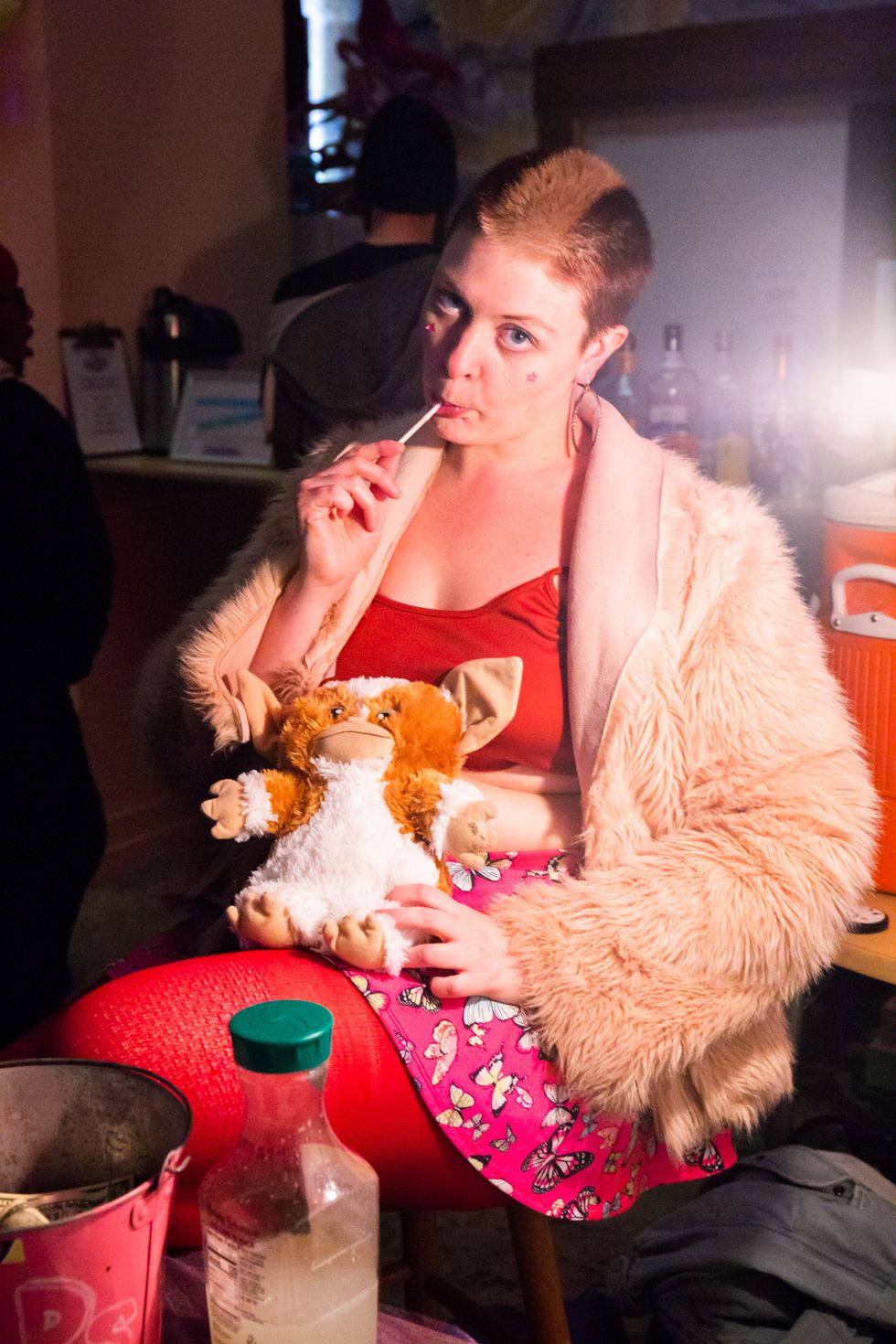
Photo by Jesse Pratt López
What was your original vision for this space, and how have you seen that mission through?
In the five months it took me to negotiate the commercial lease and secure the property, I had to write a business plan. I'm not great with numbers so I made up rough estimates that I thought could be plausible and perhaps convincing. I wrote in everything I wanted, everything me and my mom were interested in, from a garden to film screenings to art shows and a community space. I signed the lease on July 1, 2017 and immediately went on a family vacation where we brainstormed names and wrote the mission statement: "The Bakery is a new creative warehouse located in Southwest Atlanta. We are a multifaceted arts complex with a focus on community engagement, education, and new technology."
I thought it would take at least a year for the vision to become a reality, if it ever even could or would, but things started happening almost immediately. We started hosting open houses, BBQs, and volunteer days, and momentum built so quickly that by October 2017 we opened with a full art show, music festival, and late night film screening. By January 2018, we were hosting large-scale events and by Spring 2018, we were fully realized. Sometimes people criticize us and point out our shortcomings, but the truth is we grew faster than we could have ever imagined and we continue to evolve quicker than I, and our growing staff, can keep up with.
What kinds of events are now hosted at The Bakery?
We host a very wide variety of events which are mostly dictated by the people who get involved. If you give to Bakie, then Bakie will give back to you, or at least that's the idea. We host everything from avant-garde puppet shows to touring hardcore bands to international DJs to classically trained percussion quartets to local film screenings to natural dye workshops to community groups to political activations to fundraisers for local nonprofits to hip hop showcases to festivals. This past weekend, we hosted about 11 events from classes to workshops to markets to music to late night; sometimes things run virtually around the clock here. Our core audience is young, queer, and experimental but we are working to expand our network and audience in order to fulfill our mission of supporting the artists who are working to push boundaries, especially in the South.
"We host everything from avant-garde puppet shows to touring hardcore bands to international DJs to classically trained percussion quartets to local film screenings to natural dye workshops..."
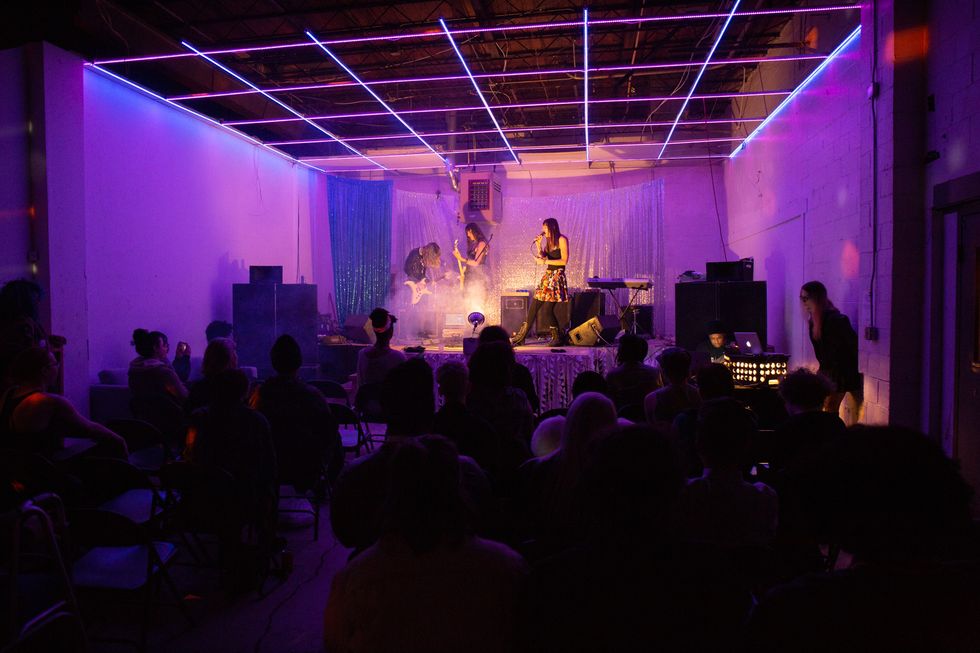
Photo by Jesse Pratt López
Is there a strong DIY scene in Atlanta?
In some ways, I would say the DIY scene in Atlanta is strong simply because it actually exists. In a broader view, I think people are rather complacent in Atlanta. We are a food and drink town. I was doing DIY in New York City without really realizing I was doing DIY. In Boston, I wasn't tapped into the small DIY scene at all and knew I was missing something but didn't know where or how to find it. When I moved back here, I was rather bored with the art scene I was seeing. Things were divided by mediums (art, music, theatre) but also by scenes (punk, indie, rap), and I couldn't find anything that reminded me of the scene I was part of in Brooklyn until finding the gallery-venues of South Downtown. At the time that The Bakery opened, the Broad Street art scene was alive and active as were several other spaces. I hadn't been "in the scene" and had absolutely no proof that there were enough creative movers and shakers in Atlanta to bring to life, let alone sustain, "my" vision but I was determined to try. However, within months of our opening, several spaces shuttered or were forced to relocate due to a variety of reasons connected to real estate development. We quickly came to be the beacon of DIY in Atlanta and while we host and create amazing programming here, monopolies do not create thriving economies. Ultimately, I believe there is the human force for a strong DIY scene in Atlanta but it needs support, resources, and infrastructure on the city, nonprofit, and patron levels as the costs of living continue to rise here.
Would you say you focus on fostering local communities and artists?
Atlanta is a very divided city. A lot of its art scene is white-walled, conservative, and high brow dictated by a fortune 500 driven economy. On the other hand, it has always been a music city and historically had a lot of venues as well as practice spaces, but those have practically vanished recently. For the past decade, Atlanta's art community has fostered a hearty DIY scene but due to drastically rising real estate costs spurred by the tech world and movie industry moving here, many spaces have recently shuttered.
DIY spaces feed the ecosystem that creates an interesting world. They inform culture, foster experimentation, and provide much needed community. This past year has been incredible in the number of people who want, need, and benefit from The Bakery. It started with a basically anonymous open call for a B.Y.O. Art Show where we had high-caliber art being dropped off to an unknown warehouse for the opportunity of a pop-up art show. It continued with our calendar quickly becoming filled with requests from local and touring acts and within months of opening, we hosted a political rally for 3,000+ people. I have seen first hand what providing low cost opportunities to motivated artists, musicians, and producers can do. Traditional venues often cannot or will not take these kinds of risks and that is the value of DIY space.
"I believe there is the human force for a strong DIY scene in Atlanta but it needs support, resources, and infrastructure on the city, nonprofit, and patron levels as the costs of living continue to rise here."
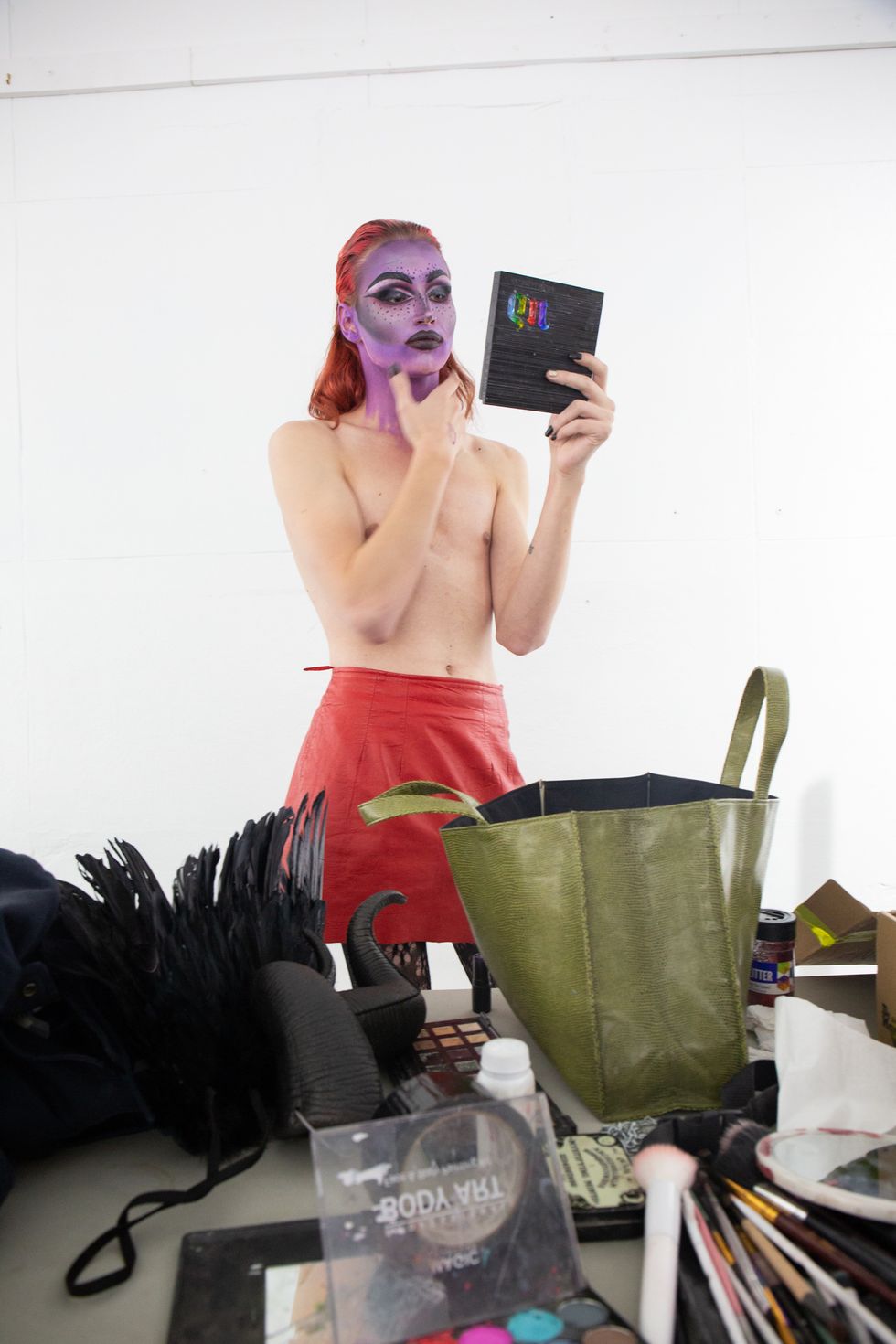
Photo by Jesse Pratt López
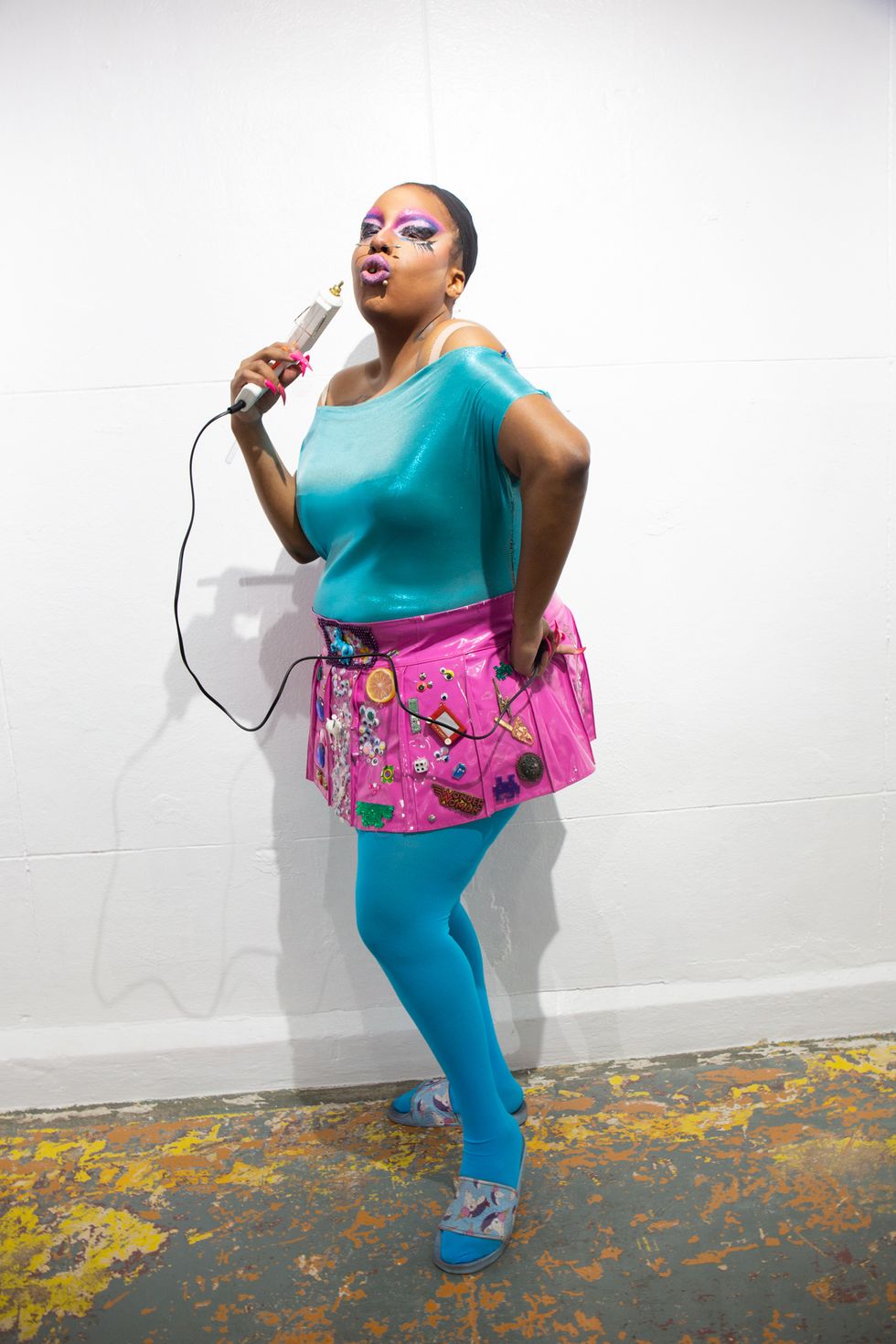
Photo by Jesse Pratt López
What are the challenges of maintaining a DIY space in Atlanta?
The biggest challenge is money but it's absence is also the biggest gift in a lot of ways. Not having money or resources makes for a lot of creative solutions. On any given week or month, we have maybe $500 we can spend on something... so the question becomes priority. Do we buy wood to build a stage OR do we install a hot water heater in the bathroom so guests can avoid freezing their hands in the winter OR do we run electrical outlets in one of our venues so we can cut back on our extension cord maze. Every decision is an investment to be closely considered.
The same goes for the team/staff. You aren't going to be paid much, if at all, so you have to really want to be here, really want to believe in the success of the space. Daily challenges include constant emails and questions that can't be answered because you are too busy plunging a toilet or prepping for an event. There is no cleaning crew or production crew, there's just a bunch of artists who keep showing up at the right time to keep the dream alive.
"There is no cleaning crew or production crew, there's just a bunch of artists who keep showing up at the right time to keep the dream alive."
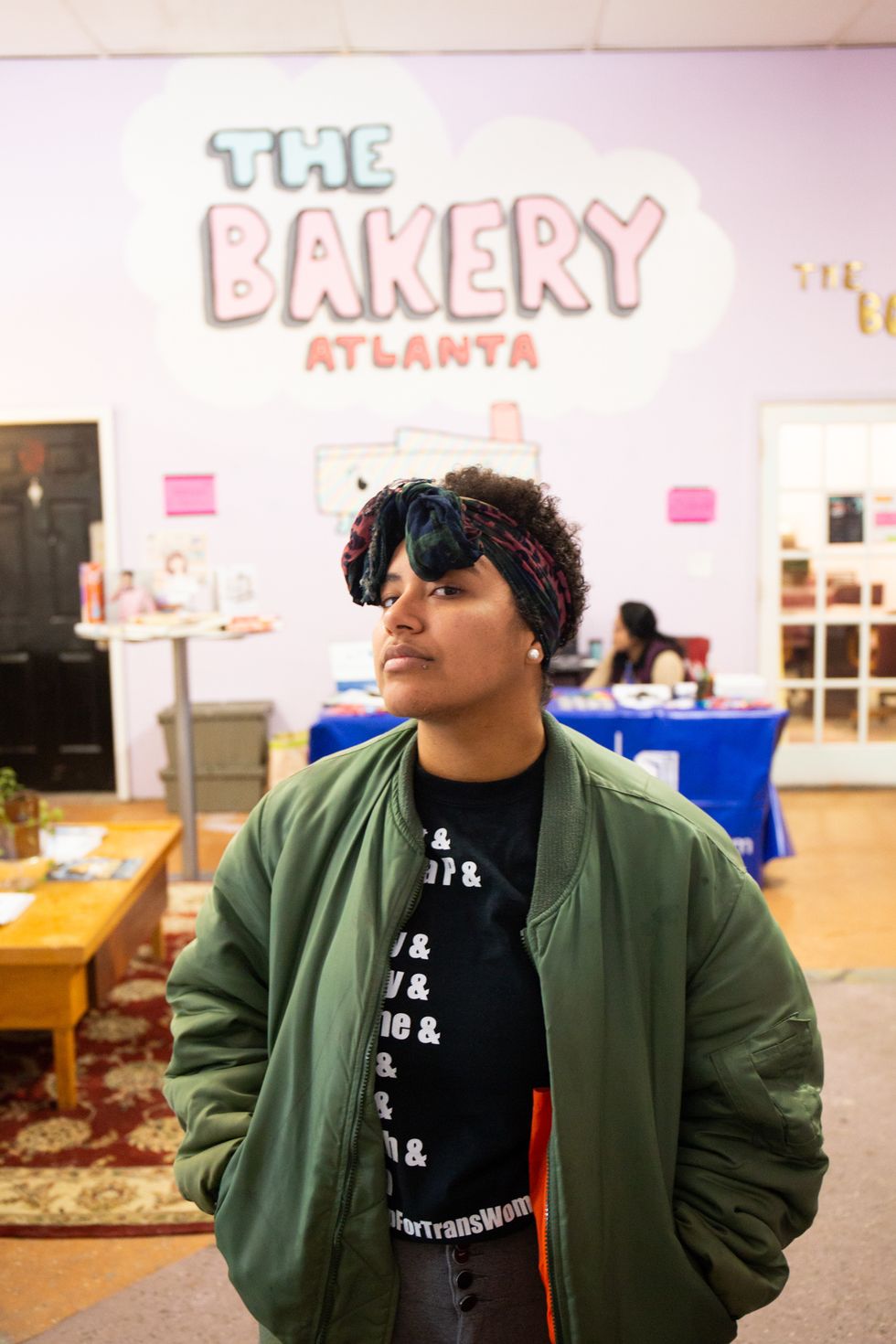
Photo by Jesse Pratt López
How has gentrification affected Atlanta?
I already touched on gentrification from an economic standpoint but Atlanta is also a very divided city racially. As a new arts organization in a predominantly Black neighborhood we are aware of the inherent implications that "creatives" cause in the cycle of gentrification. While we cannot prevent larger economic development, our goal is to support and partner with existing local organizations whenever possible. City-wide, development has caused the many arts organizations to move south and that cycle will likely continue as speculation along BeltLine real estate continues. Ultimately, it means that arts organizations, like us, will just have to keep reinventing themselves and being flexible in a city that isn't particularly keen to provide support.
How does your background impact the way you make decisions and program The Bakery?
I spent my teens and 20s doing every job and internship in the arts I could find. I consistently worked in the service industry, serving and bartending to make ends meet, while facilitating volunteer community programming for the past 6 years. This breadth of experience has allowed me to experience the frustrations, and pay-off, of being an artist-facilitator-organizer-admin. This perspective helps me balance my creative need for control with the reality that sometimes, but not always, great things can happen from the unexpected.
"Arts organizations, like us, will just have to keep reinventing themselves and being flexible in a city that isn't particularly keen to provide support."
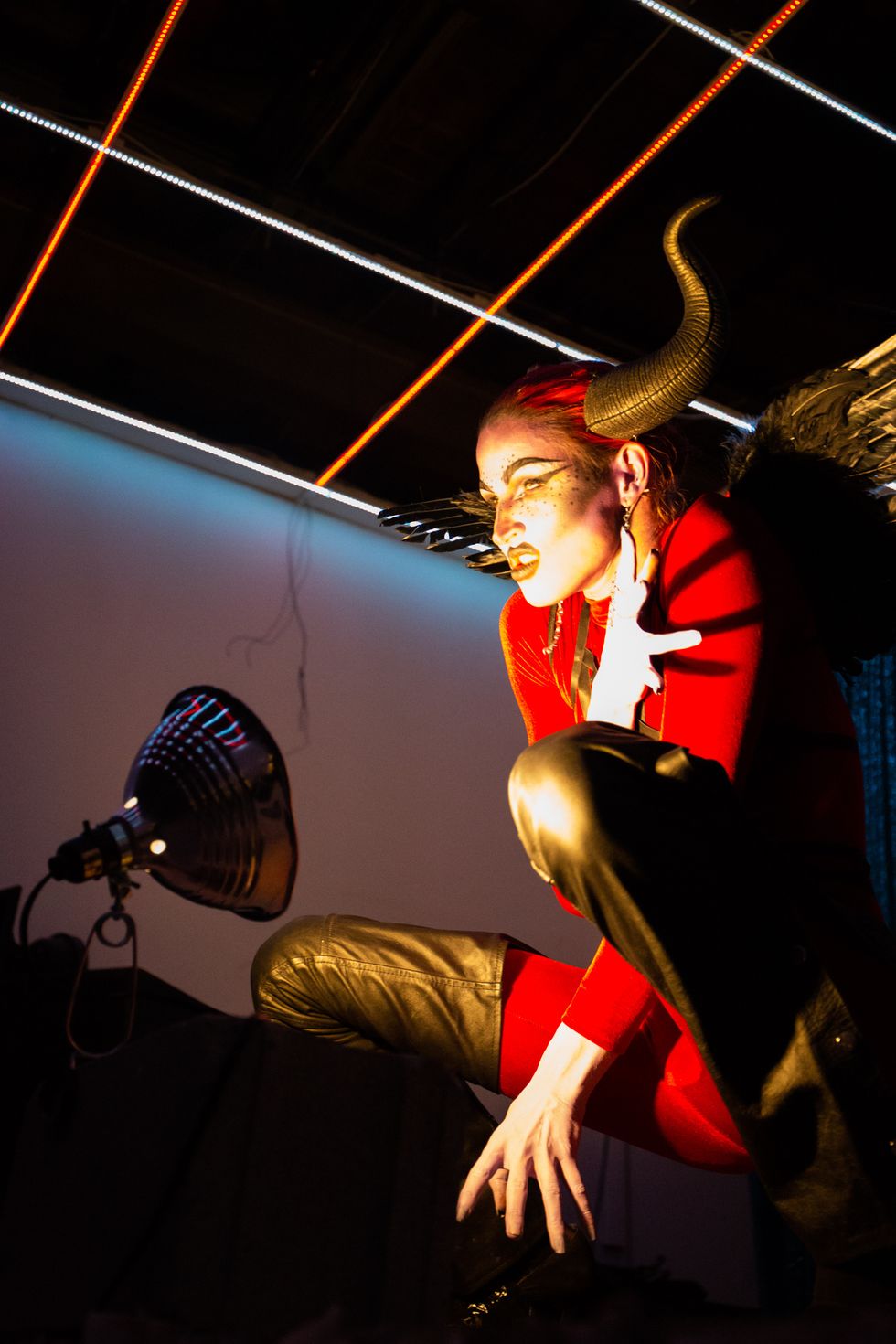
Photo by Jesse Pratt López
How many people work at The Bakery? Do you have a full staff?
Every team member has an origin story that I hold close to my heart. We have three people on "salary" (it is not a livable salary, they all work second and third jobs). We have a team of more than five that work on contract/barter and then a team of more than 20 volunteers who help make things happen. Most people function in multiple capacities from giving tours, coordinating events, and cleaning to keep things going here.
Are there any local Atlanta artists we should have on our radar that you help foster through The Bakery?
Honestly, our staff and team is comprised of some of the most diverse, talented, and motivated people in the realms of production, technology-based art, sound-art, curation, cooking, design, etc. etc. etc. We also foster several collectives that have had room to start from scratch and grow here, including Blue Summer and Kudzu who bring in local, regional, and international acts. Some specific musicians, artists, and producers that have significantly helped build us from the ground-up are LONER, Patrick Di Rito, and Southern Fried Queer Pride (SFQP). LONER is a talented collective of musicians/band that frequently plays at The Bakery. Their drummer helped book our opening event and literally built our stage. They also co-produced our second in-house production, Celesthesia, which won best variety show via Creative Loafing. We presented the first solo show by Patrick Di Rito which was also the first "white-wall" show our gallery hosted. Southern Fried Queer Pride (SFQP) is a DIY organization that "...is committed to queer and trans art, activism, and community building here in Atlanta and abroad," and we host a number of their events throughout the year, including their annual festival.
For more information on The Bakery, visit thebakeryatlanta.com, and follow them on Instagram (@thebakeryatlanta).
Photos courtesy of Southern Fried Queer Pride (SFQP) from Trans Pwr Fest at The Bakery (Photography: Jesse Pratt López).